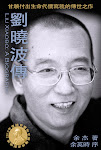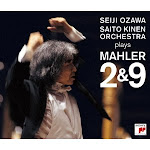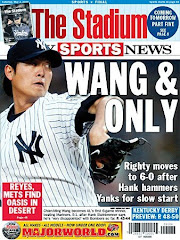
指揮家Leonard Slatkin12年來重返紐約大都會歌劇院,首次嘗試演出個人新劇目《茶花女》,3月29日第一場結束後,媒體一片惡評,指揮家本人也在自己的部落格坦承「對作品不熟」、「只有自己是第一次演出此部作品」、「樂於從Angela Gheorghiu與Thomas Hampson等經驗豐富的大師身上學習寶貴經驗」,這未免有點坦白過頭了!而最後到底是「被迫換掉」或者是「主動引退」,為顧及兩造顏面,應該很難一探究竟了,但無論如何,對於Leonard Slatkin來說,傷害恐怕很難彌補了....
以下是紐約時報樂評家ANTHONY TOMMASINI刊載於3月31日的樂評全文~
Who would have guessed that a routine revival of “La Traviata” at the Metropolitan Opera could cause such a ruckus? The problem was that the conductor Leonard Slatkin, appearing at the Met for the first time in 12 years, showed up for rehearsals not fully knowing the score. You did not have to believe the reports that spread on opera chat lines to know this. Mr. Slatkin conceded as much on his personal Web site, leonardslatkin.com.
“I do not perform a lot of opera” and “had never conducted” this Verdi staple, he wrote in a post earlier this month. But he figured that “since everyone else in the house knew it, I would learn a great deal from the masters.”
Hmmm. For a conductor to use the opportunity of a Met production to learn “La Traviata” doesn’t seem the best idea. Those “masters” Mr. Slatkin referred to included the soprano Angela Gheorghiu, an acclaimed Violetta, and the baritone Thomas Hampson, a veteran Germont. Mr. Slatkin reported on his Web site that during rehearsals he seemed to be “the only person who has never performed ‘Traviata,’ ” which, he added, caused “some raised eyebrows.”
I can only imagine, given that the temperamental Ms. Gheorghiu was his star. Whatever the case, the results told all when the revival of Franco Zeffirelli’s extravagant production opened on Monday night. I have seldom heard such faulty coordination between a conductor and a cast at the Met.
By way of background, Mr. Slatkin had originally agreed to conduct John Corigliano’s “Ghosts of Versailles,” last performed at the house in 1995. Mr. Slatkin, the music director of the Detroit Symphony Orchestra and a champion of American music, had conducted Mr. Corigliano’s opera in Chicago.
But in a cost-cutting adjustment to the Met’s 2009-10 season, “The Ghosts of Versailles” was replaced with “La Traviata.” On his Web site Mr. Slatkin wrote that he did “a lot of digging” into the Verdi work and the Verdi style: “What constituted tradition and why?”
The element of the style that Mr. Slatkin had the most trouble with on Monday involved his awkward handling of accompaniment patterns. Page after page of the score is filled with oom-pah-pah orchestra riffs, which accompany Verdi’s long-spun melodic lines. Still, the score should come with a warning to conductors: “This is not as easy as it looks.”
The challenge is to support the singers, allowing them expressive freedom to bend lyrical phrases while maintaining an undulant gait. A singer’s expressive turns cannot all be planned in advance. A Verdi conductor has to be able to react in the moment to interpretive freedom.
In Mr. Slatkin’s defense, Ms. Gheorghiu is not easy to follow. She knows the style intimately but is an impassioned artist prone to boldly expressive singing. On Monday most of her interpretive touches seemed within the bounds of taste. Still, now and then she was all over the place rhythmically, for example, at the wrenching moment during the ensemble scene with chorus when the courtesan, Violetta, having rejected her lover, Alfredo, is insulted by the hotheaded young man before all the guests at a Paris soirée.
Ms. Gheorghiu may be a willful artist, but Mr. Hampson is an admirably straightforward musician. Yet he, too, had trouble staying together with Mr. Slatkin. I have never seen Mr. Hampson glancing so often at a conductor in a performance at the Met.
It is a tribute to the cast members that despite the problems, they managed to sing so well and bring “La Traviata” to life. Ms. Gheorghiu is not as technically solid as she once was, and the earthy richness in her sound sometimes turned a little tremulous. Still, she dispatched the coloratura runs in “Sempre libera” with exciting determination. Her top notes and soaring phrases filled the house, yet she brought affecting intimacy to “Addio, del passato,” before Violetta’s death. Ms. Gheorghiu is as beautiful as ever, though for me, her acting was histrionic at times. The audience loved her.
The young American tenor James Valenti had a solid success in his Met debut as Alfredo. He is tall (over 6 feet 5 inches), handsome and physically agile: qualities reflected in his virile and attractive singing. His voice is not huge, but it carries well. He won a rousing ovation.
The applause for Mr. Slatkin was restrained but respectful. Perhaps the overall performance will gain shape during the run as he continues to learn the piece. Better late than never.
始作俑者ANTHONY TOMMASINI在4月5日又有一篇後續報導,充滿十足為自己辯護的味道,還「吊書袋」舉了一堆歷史名演的例子來顯示自己這麼批評絕對是有道理的...
Verdi Chops Are Tested by ‘Traviata’ It is hard not to feel sorry for Leonard Slatkin in the aftermath of his withdrawal from the Metropolitan Opera’s revival of “La Traviata.” True, he has much to answer for. He had never performed this popular Verdi opera when he accepted the engagement to conduct it at the Met. By his own admission he was insufficiently prepared.
Mr. Slatkin is a major conductor of symphonic repertory and contemporary music. Still, his shaky, awkward conducting of “La Traviata” last Monday when the run opened suggested that beyond not knowing the score well enough, he lacked affinity for the style of mid-19th-century Italian opera. Marco Armiliato, a reliable, experienced and, lately, very busy house conductor at the Met, took over on short notice for the second performance on Saturday. The cast — Angela Gheorghiu as the courtesan Violetta; James Valenti as her smitten lover, Alfredo; and Thomas Hampson as Alfredo’s meddlesome father, Germont — seemed elated to have someone in the pit with demonstrable sensitivity for the Verdi style.
But what exactly is that style? Various conductors over the years, while all claiming links to the heritage, have come up with different answers. The Verdi of “La Traviata” had deep roots in the older bel canto tradition, a tradition that valued melody above all and cultivated voices that could spin lyrical lines with evenness throughout the range and ably dispatch coloratura embellishments.
A central component of the Italian style calls for singers to shape phrases with expressive freedom. Yet a singer cannot tug at the music so much that the vocal line loses its contour and goes limp.
For a conductor there is more involved here than just following the singers. The great exponents of the style know the repertory and the art of singing so thoroughly that they can intuit on the spot what expressive liberties a singer is going to take.
To help me put the Met’s current “Traviata” in context, I relistened to three classic recordings: Toscanini’s live 1946 performance with the NBC Symphony Orchestra (RCA and other labels), Carlo Maria Giulini’s live 1955 performance at La Scala Opera in Milan (EMI Classics) and Carlos Kleiber’s studio recording with the Bavarian State Orchestra, released in 1977 (Deutsche Grammophon).
Toscanini, having played the cello in the 1887 premiere of “Otello” at La Scala (with the composer supervising everything), could certainly claim a direct link to the Verdi heritage. But by the 1940s he was in his towering maestro mode, determined to clean up the indulgent mess, as he saw it, that had come to be considered the Italian opera style. In his “Traviata” recording the tempos never dawdle, textures are lucid, and the orchestra plays with crisp rhythmic integrity. He keeps a tight rein on his cast, headed by the soprano Licia Albanese as Violetta and the tenor Jan Peerce as Alfredo.
In Act I, in the tender duet “Un dì felice,” Alfredo tells Violetta that he has loved her since he first saw her from afar. The tenor’s melody begins simply, over a gentle oom-pah-pah in the orchestra. When the vocal line opens up as Alfredo declares his love (“Di quell’amor”), Verdi writes “Con Espansione” (literally, “With Expansion”) above the vocal line. Verdi is telling the tenor to take expressive freedom. But how much?
Under Toscanini, not very much. The tempo is undulant but steady, and Peerce sings elegantly. Still, there is no interpretive funny business. Only when Peerce takes a high A at the top of the phrase on the word “croce” (“cross”) does Toscanini give his tenor a moment to relish. When Ms. Albanese playfully dismisses talk of love in her reply, she essentially maintains the tempo and sings straightforwardly. At the end of this brief duet, when the voices mingle and break into an unaccompanied cadenza, the singers are at last given real freedom to “expand.”
Toscanini’s lesson in musical integrity did not completely take, as evidenced by Giulini’s 1955 La Scala “Traviata,” with Maria Callas as Violetta and Giuseppe di Stefano as Alfredo. “Un dì felice” is quite a bit slower and much freer. Di Stefano really expands in the soaring phrase where Verdi invites him to. And at the high A, where Peerce was allowed a moment to shine, di Stefano stops the show, tossing off a thrilling top note. During Violetta’s capricious reply, Callas sings the coloratura runs with brilliance and a sly touch of flirtatiousness. In the final phrases the two sing with unabashed expressive ardor. Under Toscanini the duet lasts 2 minutes 30 seconds. Under Giulini, nearly 4 minutes: a stunning difference.
Yet this is Callas and di Stefano in their primes. The performance may be at an extreme of expressivity, but it is ravishing. Under Giulini the orchestra breathes with the singers, without ever coming across as some Verdi backup band.
Kleiber, the great Berlin-born conductor, finds a happy medium in his splendid “Traviata,” with Ileana Cotrubas as Violetta and Plácido Domingo as Alfredo, both superb. His tempo for “Un dì felice” has a gentle gait, a bit slower than Toscanini’s. The restraint allows the singers a little more room to stretch and bend the lines. As the voices blend during the final phrases, they sing with delectable pianissimo tenderness, especially Mr. Domingo’s. The duet is just 30 seconds longer than in Toscanini’s performance.
Though Toscanini was a phenomenal opera conductor, in recent years I have found myself less enchanted by his classic recordings from the 1940s with the NBC Symphony. There is a telling moment in his “Traviata,” during the ball at Flora’s house in Act II. Alfredo, incensed at Violetta’s inexplicable dismissal of him, gambles recklessly at cards and wins a hefty sum from his rival Baron Douphol. As the guests gather around the table, Violetta looks on, worried that something terrible will result.
The ominous music hurtles forward with an insistent accompaniment figure in the orchestra, as Alfredo, the Baron and Flora exchange sputtered phrases. Then Violetta sings a soaring melodic phrase to herself (repeated later), wondering why she ever dared to attend the party. It has become traditional for sopranos to take expressive liberties here. Ms. Albanese is allowed no such freedom under Toscanini. The pace does not slacken as she voices her fears.
Giulini’s overall tempo, though slower than Toscanini’s, still conveys anxiety. But when Callas sings Violetta’s solo phrase, Giulini gives her time to wrench every bit of emotion from it. Kleiber, again, finds a middle ground, conducting the scene with precision and restless energy, yet still giving Ms. Cotrubas some leeway to sing with poignancy.
In a way, Toscanini’s strictness makes dramatic sense because the tension of the confrontation never lessens. Still, in that soaring solo phrase Ms. Albanese sounds more worried about not keeping up with Toscanini than about what might befall Alfredo.
Conductors like Riccardo Muti, James Levine and, more recently, Antonio Pappano have, like Kleiber, been able to blend Italianate style with up-to-date musicianship in their Verdi performances. The old-time house conductors in opera were typically patronized as lesser musicians who earned their keep by catering to prima donnas and learning how to conduct a flexible oom-pah-pah. But it takes musicianship of a special kind, as well as deep understanding of the voice, to conduct these scores with insight and taste.
Mr. Slatkin’s mistake was to accept the “Traviata” gig in the first place. No musician can be good at everything. He had nothing to prove.Still, his trouble made me think back to those Italian house conductors I heard at the Met in my youth, like Fausto Cleva and Nello Santi. They may not have been imposing maestros, but they knew a thing or two about Verdi.








































